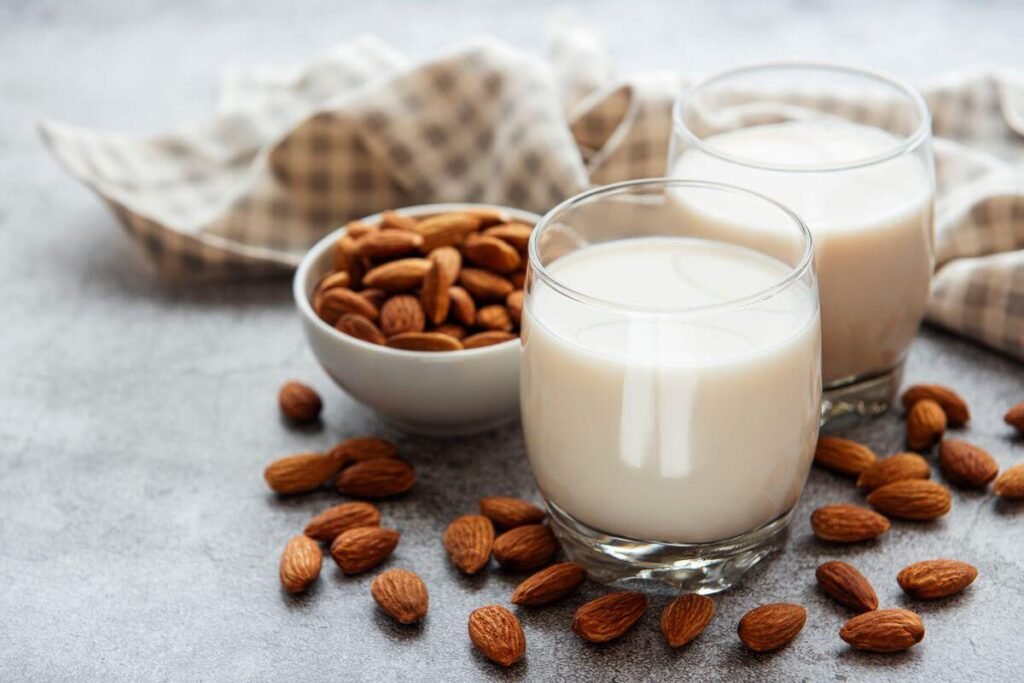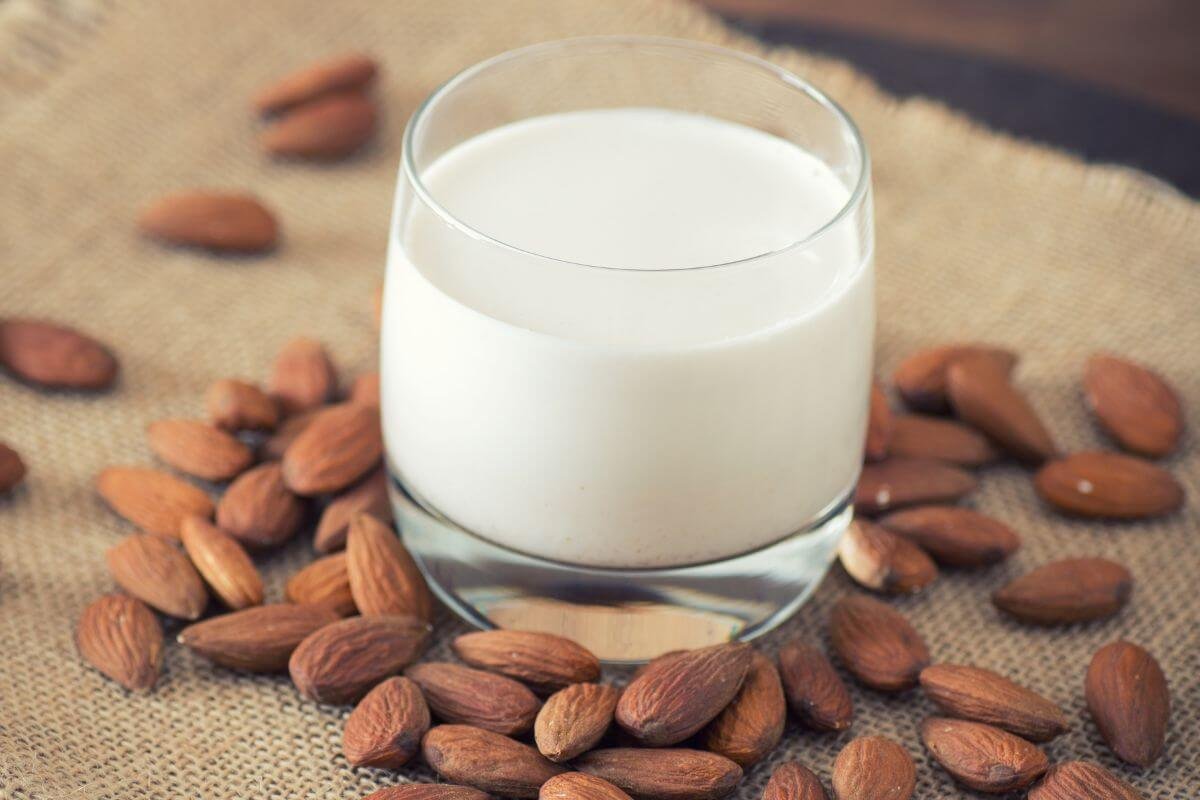There are a number of health benefits to drinking almond milk, but if you want to know more about them, read on. Vitamin E, for example, is known to help fight Alzheimer’s disease. Calcium is an excellent source of calcium, and it may even help prevent autoimmune diseases. Protein in almond milk also helps build muscle. But which health benefits are best for you? Let’s take a closer look.
Table of Contents
Vitamin E in almond milk helps fight Alzheimer’s disease.
Among the most significant health benefits of almond milk is the presence of vitamin E, an antioxidant. Antioxidants protect the body against the damaging effects of free radicals, which cause various diseases and disorders, including Alzheimer’s disease. Vitamin E in almond milk can delay the onset of symptoms such as confusion and memory decline, as it has been shown to slow the progression of the disease. In addition to being an important antioxidant, almond milk also has a number of other beneficial benefits, such as the ability to lower the risk of other serious health issues, such as cancer.

The antioxidant properties of vitamin E in almond milk may also help prevent heart disease. A high intake of vitamin E has also been linked to a reduced risk of age-related cataracts, which can compromise vision. Vitamin E can also delay cognitive decline associated with Alzheimer’s disease and may even prevent it altogether. Almond milk also contains Vitamin B2, which supports the production of red blood cells in the bone marrow. Red blood cells carry oxygen from the lungs to the rest of the body. Insufficient amounts of vitamin B2 can result in shortness of breath, dizziness, extreme fatigue, and irregular heartbeat.
Calcium in almond milk reduces the risk of heart disease.
Drinking almond milk is beneficial for your heart. It contains 30 percent of the daily recommended value of calcium and 25 percent of vitamin D. These nutrients work together to maintain strong bones and teeth. In addition to calcium, almond milk also contains 50 percent of the recommended daily allowance of vitamin E. Vitamin E has antioxidant properties and helps prevent the damaging effects of the sun on your skin. In addition to its beneficial effects on your heart, almond milk can help lower your blood pressure.
Various studies have shown that consuming large amounts of calcium supplements can increase the risk of cardiovascular events. However, the relationship between calcium intake and cardiovascular events is unclear. Although high milk intake is associated with a decreased risk of CVD, supplemental calcium has been associated with a higher risk. Further studies are necessary to determine the role of calcium intake on cardiovascular risk factors and events. However, the benefits of almond milk can’t be overstated.
Get Your Custom Keto Diet Plan Now
Vitamin D in almond milk may prevent autoimmune diseases.
The vitamin D in almond milk is not present in all varieties. However, some brands have been fortified with vitamin D. The amount of vitamin D per serving is equal to that of a glass of fortified cow’s milk. It may not prevent autoimmune diseases, but it can help reduce the risk of autoimmune diseases. Almond milk may contain a significant amount of vitamin D. 3.5 ounces of fortified almond milk can contain up to 2.62 micrograms of vitamin D, which is equivalent to that in 1 glass of fortified cow’s milk.
Although the exact relationship between milk consumption and autoimmune diseases is not known, there are many studies showing that consuming almonds reduces the risk of developing rheumatoid arthritis. Studies also suggest that the amino acids in milk act as a natural collagen-like substance, which can lead to rheumatoid arthritis. Therefore, eliminating dairy products from your diet may prevent or reverse some autoimmune conditions.
Moreover, almond milk contains plenty of vitamin E. This vitamin may help your body clear cellular-damaging free radicals. Free radicals are created from normal body processes and the environment.
Protein in almond milk helps build muscle.
While the nutritional value of almond milk may be questionable, it is a good source of protein that promotes the building of muscle and maintains healthy skin and hair. Proteins also aid in the production of essential hormones and enzymes. Experts recommend consuming about 0.36 grams of protein for every pound of body weight each day. This means that an average sedentary man and woman need about 56 and 46 grams of protein per day, respectively. These needs rise significantly with increased activity levels.
While many bodybuilders use dairy milk to fuel their muscle-building efforts, almond milk is an excellent choice for lactose intolerant and vegan individuals looking for a protein-rich milk alternative. Almond milk contains riboflavin, which works in conjunction with iron to encourage muscle growth. By making almond milk the preferred milk for bodybuilders, almond milk has the potential to be a valuable supplement for your daily nutritional regimen.



